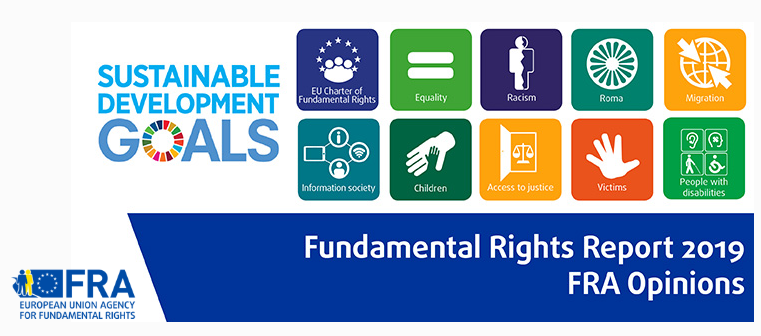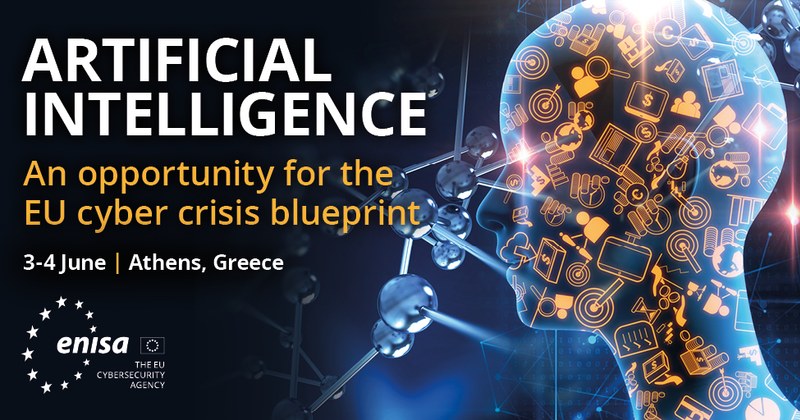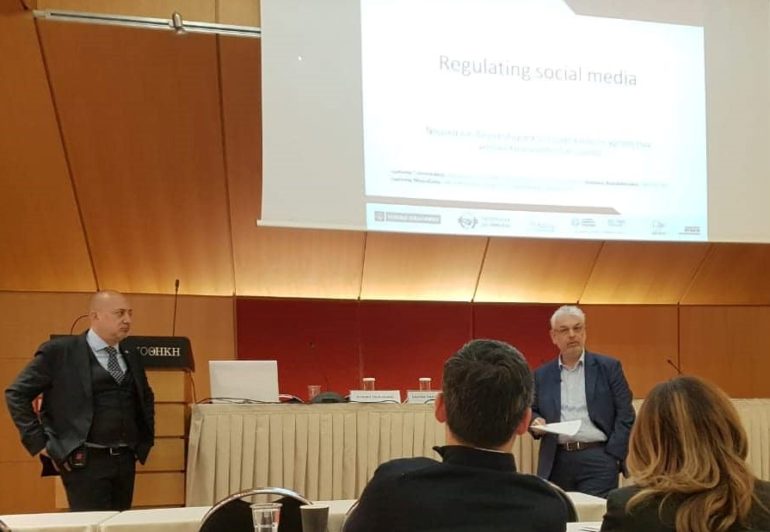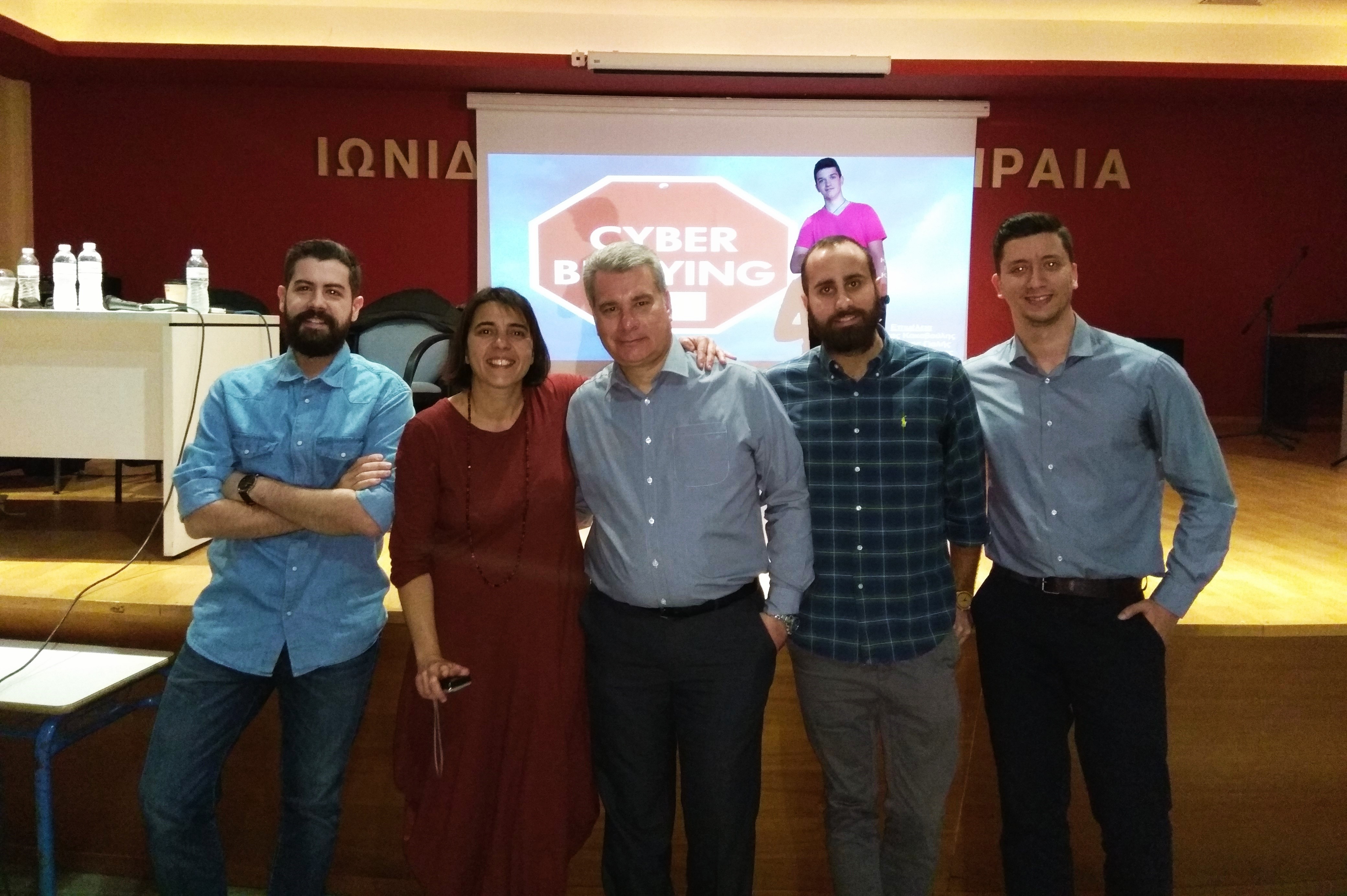FRA's new Annual Report on Human Rights and its new research on Artificial Intelligence is here!
The European Union Agency for Fundamental Rights (‘FRA’) published its new report on Human Rights on June 6.
The report summarizes and analyzes the most significant developments in the field of Human Rights in 2018 in the European Union and includes specific proposals and suggestions for action.
One of the most important pillars of the report that is of particular interest is Chapter Seven (7), which specifically is related to information society and privacy and personal data protection issues.
In this year’s edition of the report, Chapter Seven focuses on the implementation of the GDPR provisions, on developments in artificial intelligence and cyber-security, on case-law/legislation developments on the preservation of electronic communications metadata, and on cross-border access to data related to law enforcement authorities.
The report also includes chapters related to: the EU Charter of Fundamental Rights and its use by the Member States, equality and non-discrimination, racism, xenophobia and related forms of intolerance, Roma inclusion, asylum, borders and immigration, children’s rights, access to justice and the implementation of the UN Convention on the rights of the people with disabilities.
On June 11, FRA published its new study on Artificial Intelligence. The study focuses on the importance of data quality used by mechanical learning algorithms for automated decision making.
Homo Digitalis at ENISA Conference in Greece
At the beginning of this week, our organisation had the great pleasure and honour to participate in the conference organised by the European Network and Information Security Agency (“ENISA”), under the title: “Artificial intelligence: An opportunity for the EU cyber-crisis management”.
At this conference, we had the pleasure to exchange ideas and opinions with specialists from Greece and abroad, representatives of the institutions and bodies of the European Union, Academics and private operators.
You can see the full program of the Conference here.
We want to wholeheartedly thank the organisers of the Conference for this event, which was free of charge and of high level of quality. It is of paramount importance such actions to take place in Greece so as to enhance the dialogue between the involved stakeholders and to forge significant partnerships.
Homo Digitalis participates in major conferences and events in EU and the United States
In May 2019, our organisation had the pleasure to participate in events of high importance in Europe and the United States of America; there we discussed, exchanged points of views and concerns regarding the protection of Human Rights with academics and representatives of important organisations of civil society.
At the beginning of May, we attended the two-day seminar in Vienna, which was organised by noyb and Access Now under the auspices of Digital Freedom Fund on the implementation of the provisions of GDPR.
In mid-May, we had the pleasure to participate in CopyrightX Summit held by Harvard Law School and its Research Center Berkman Klein Center about the arising challenges in relation to intellectual property rights through the use of new technologies, and to attend the presentation of the investigator’s David Weinberger book “Everyday Chaos”, which concerns the influence of Artificial Intelligence on the development and establishment of modern societies.
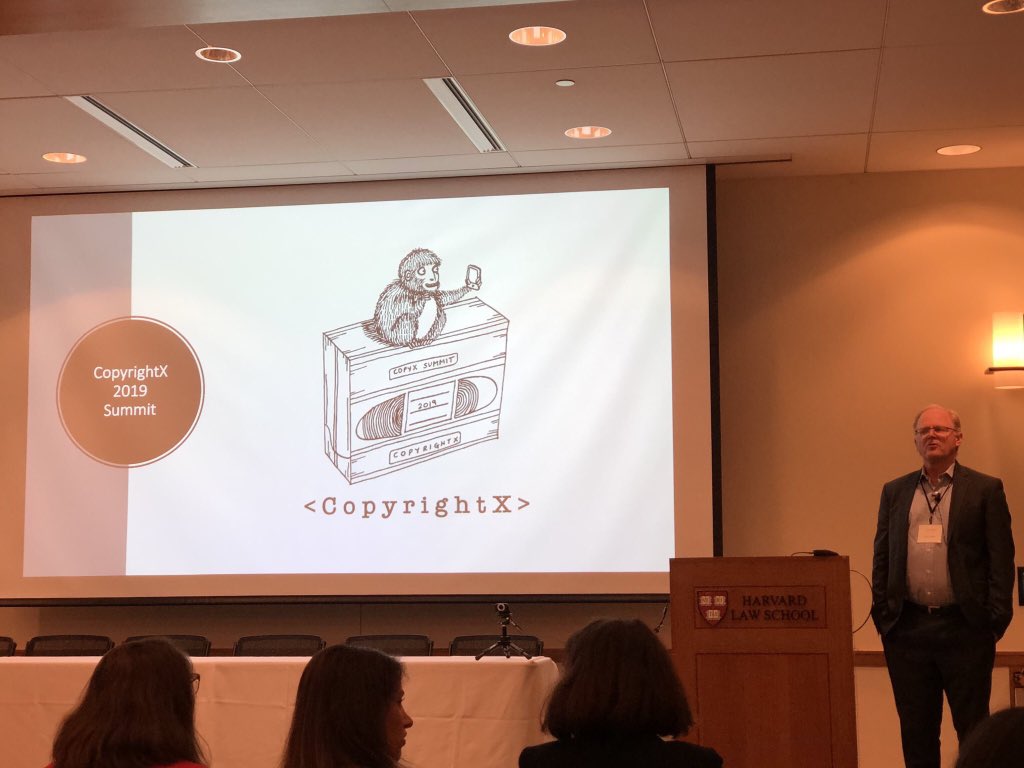

We, also, participated in the TILTing Perspectives 2019 Conference, organised by the Research centre of Tilburg Institute for Law, Technology, and Society (TILT) in the Netherlands. This specific three-day conference takes place every two years and is one of the most important academic events for law and new technologies researchers.
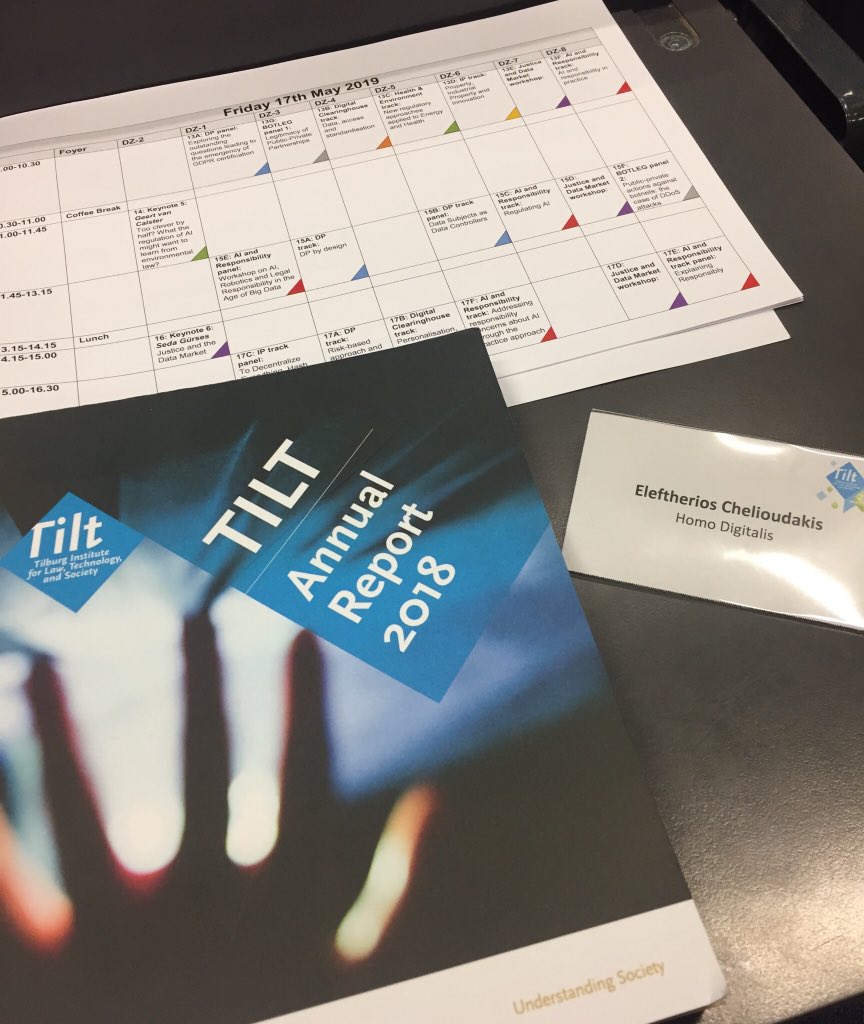
At the end of May, we accepted the invitation to attend the international conference “Malta Al and Blockchain Summit”, which brings together a large number of private operators and addresses the recent trends and the new technological advancements in the field of Artificial Intelligence and Blockchain.

May of 2019 was, for sure, a month of major events and meetings, during which common strategies have been designed and cooperations have been forged between our organisation and various well-known private organisations for the future.
Stay tuned for more news!
The proposed reform on European Intellectual Property Law has been approved
Today, the Member States of the European Union voted in favor of the proposed European Directive on copyright and related rights/neighbouring rights in the digital single market and amending Directives 96/9/EC and 2001/29/EC.
Six (6) Member States voted against the reform (Finland, Italy, Luxembourg, Netherlands, Sweden, Poland), three (3) abstained (Belgium, Estonia, Slovenia), and nineteen (19) voted in favor of the reform, including, unfortunately, Greece.
Our organisation, Homo Digitalis had previously informed in detail about the very significant repercussions of Article 17 through open letters addressed to the competent Ministers, to the President and to the Prime Minister of the Hellenic Republic [click the relevant links to read the open letters in Greek].
EU Member States will have a period of two years to integrate the relevant legislation into their national law.
The new issue of GDPR Today is out
The new issue of GDPR Today was released on 25 March 2019.
It includes many articles concerning the latest developments at Member States and European Union level on issues related to the application of GDPR provisions.
It also includes a section called “GDPR in numbers” with statistical information for the number of complaints and the number of data breach notifications in seven countries of the European Union, including Cyprus.
At this point we would like to give our sincere thanks to the Data Protection Commissioner’s Office of Cyprus and the Hellenic Data Protection Authority for the pleasant collaboration and the concession of the required statistical data.
This issue has been produced by the Open Rights Groups organisation.
The following organisations took part:
-
- Access Now
- Association for Technology and Internet
- Bits of Freedom
- Data Skydd
- Homo Digitalis
- Panoptykon Foundation
- Privacy International
Seminar “Regulating Social Media” with the participation of Homo Digitalis
On Tuesday 27.03.2019 the seminar “Regulating Social Media” took place in Nomiki Bibliothiki (Mavromichali 23, Athens). The seminar was attended by young lawyers who were sensitized and informed about issues that arise from the use of social media.
Lecturers were Mr. Ioannis Giannakakis, lawyer, and Mr. Vasilis Vasilopoulos, DPO of ERT.S.A. and member of Homo Digitalis. Mr. Ioannis Marozinis, lawyer, interfered.
Mr. Vasilopoulos who represented our organization, introduced legal and ethical issues concerning the use of social media.
Our members Mary Mouzaki, Maria-Alexandra Papoutsi, Agamemnon Gavrilidis, Haris Kiritsis, Christina Kalogeropoulou, Ioannis Ntokos, Katerina Psichogiou, Stergios Konstantinou, Ifigenia Gaki, Anastasios Arampatzis, Vaggelis Farmakidis, Nikos Giannaros, Konstantinos Kakavoulis participated in the preparation of the presentation.
Each of our members has approached the issues arising from the use of social media depending on his/her specificity.
We sincerely thank everyone who worked for this seminar and particularly Mr. Vasilopoulos for the excellent presentation!
Homo Digitalis at Ionidios School of Piraeus
Today, 27 March 2017, Homo Digitalis conducted a presentation to students of 12-15 years in Ionidios School of Piraeus concerning Cyberbullying and the proper use of the Internet and personal data. Students took a great deal of interest in this matter, while many of them remained after the layoff to discuss with Kimonas Georgakis, Panagiotis Gialis and Konstantinos Kakavoulis, who conducted the presentation for our organisation.
Warm thanks to Mr. Dimitris Zografopoulos, DPO at the Ministry of Health, for the invitation and the exceptional co-presentation!
In the coming months, Homo Digitalis will conduct many school presentations about digital rights and their protection.
Stay tuned!
Pledge2019.eu: Voters poised to make upload filters a dealbreaker in EU elections
Millions of Europeans are on record rejecting “upload filters” on the internet, which the European Parliament is set to vote on just weeks ahead of the EU elections. Today, Austrian digital rights NGO epicenter.works and partner organisations from across Europe, including Homo Digitalis, are launching the campaign Pledge2019.eu, inviting representatives to pledge to reject upload filters, and voters to reach out with a clear message: We will only vote for politicians who vote against this attack on our freedom of speech.
Pledge2019.eu allows voters from all EU member states to call their representatives free of charge and ask them to pledge to reject Article 13 of the controversial EU Copyright Directive.
“Europeans have made their opposition to upload filters crystal clear in a petition that is closing in on a record-breaking 5 million signatures. However, a malicious rumor circulating in Brussels dismisses these concerned citizens as ‘bots’. That made it necessary to empower voters to speak directly to their representatives, removing all doubt that they are real and that this issue is of real consequence to them”, says Bernhard Hayden, copyright expert at epicenter.works.
“Article 13 threatens the foundations of the free and open internet”, Hayden explains: ”It will leave websites and apps no choice but to install upload filters, effectively censorship machines that must approve anything users wish to post or upload. Levied with the impossible task to prevent any and all copyright infringement before it happens, these filters will inevitably block thousands of legitimate acts of free expression. Diversity online is additionally at risk as small platforms may cave under the onerous obligations and legal uncertainty.”
The final vote in the European Parliament may take place as early as March, with the exact date yet to be announced. The 751 representatives from 28 member states will have the option to reject the entire project or remove the most controversial articles.
“The opposition to Article 13 is not fake, it’s not mere clicktivism, and it’s certainly not in service of any corporate interest – it’s Europeans participating in EU democracy and standing up for their fundamental rights. Seven years ago, citizens successfully defeated the ACTA treaty. This year, they will again make their voices heard”, says Hayden.
Homo Digitalis participates additionally in the #SaveYourInternet campaign.
Watch the campaign's video!
Homo Digitalis signs EPIC's Universal Guidelines for Artificial Intelligence
Today «Electronic Privacy Information Center» (EPIC) published the Universal Guidelines for Artificial Intelligence, in Brussels at the Public Voice symposium “AI, Ethics, and Fundamental Rights.” The symposium is part of the 40th International Conference of Data Protection and Privacy Commissioners (ICDPPC 2018).
The Universal Guidelines set out 12 principles to “inform and improve the design and use of AI. The Guidelines are intended to maximize the benefits of AI, to minimize the risk, and to ensure the protection of human rights.
Homo Digitalis is one of the organizations and experts around the world that has signed and endorsed EPIC’s Universal Guidelines for Artificial Intelligence.
You can access the full document and the list of endorsements here.
You can access the related press release here.
